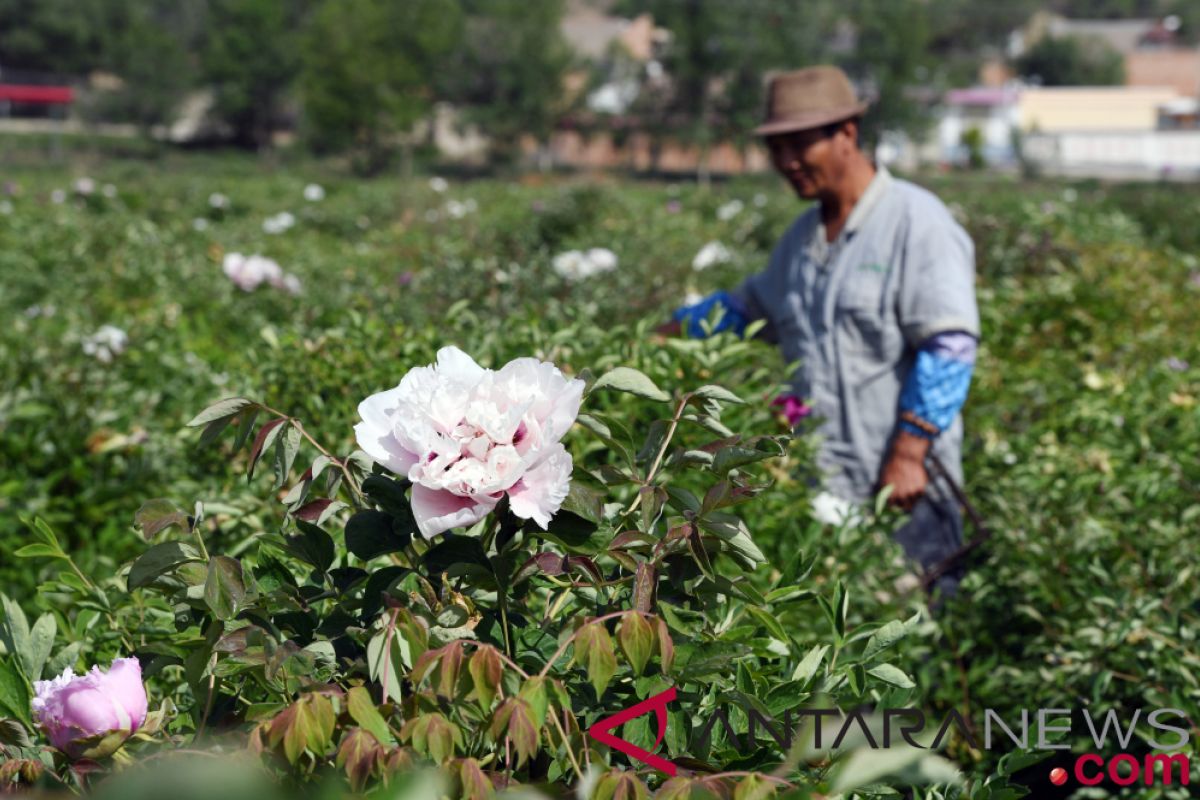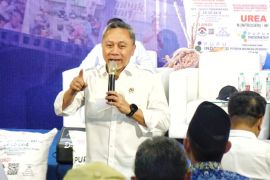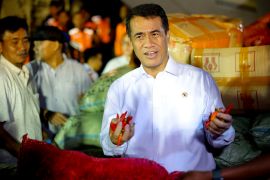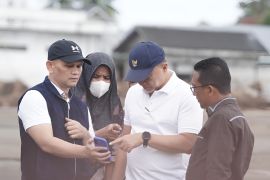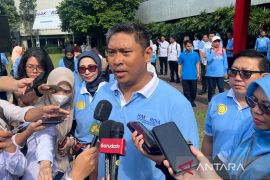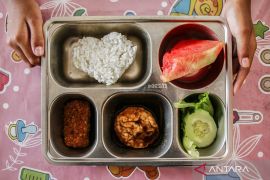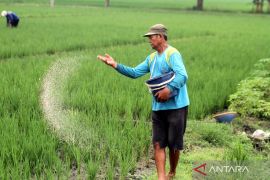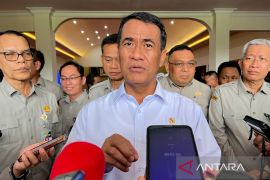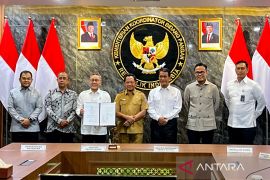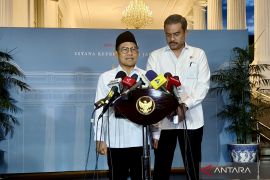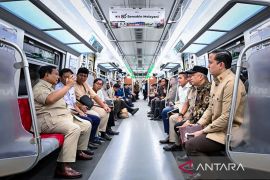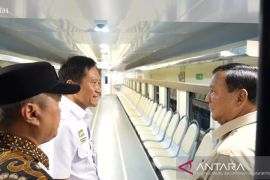Thus, agricultural development plays a strategic and important role in improving the welfare of rural communities, comprising largely farmers.
Agriculture Minister Andi Amran Sulaiman had stated that in the Ministry of Agriculture`s Budget Draft for the 2019 budget year, the government had prioritized the interests and welfare of farmers.
After holding a working meeting with the House of Representatives` Commission IV in Jakarta recently, Sulaiman noted that the Ministry of Agriculture had designed the current budget, with focus on the production sector, and had prioritized the interests and welfare of farmers.
According to Sulaiman, the Agriculture Ministry prioritized the farmers, procured fertilizers for them, supplied agricultural machinery, and improved the irrigation system.
However, in the development of irrigation channels in various regions to increase agricultural production, Public Works and Public Housing Ministry`s Directorate General of Water Resources Chief Agung Djuhartono had highlighted the importance of involving farmers.
In a written statement received here on Friday, Djuhartono stated that the absence of planned and adequate operations and maintenance activities by the farmers will have an impact on the irrigation channel damage that can reduce their services.
In addition, he remarked that the cost of repairs will be higher over time, while the availability of budgets, at both the central and regional levels, is also limited.
To implement this, he noted that the Ministry of Public Works and Public Housing, Ministry of Home Affairs, Ministry of Development Planning/Bappenas, and the Ministry of Finance must cooperate, so that the construction and maintenance of irrigation systems can be integrated between water supply buildings and irrigation networks.
According to Djuhartono, cooperation between the central government, local government, and farmers can improve small irrigation networks.
Through these activities, farmers are involved as the main actors in the development and improvement of irrigation channels, so as to increase awareness in their maintenance.
"The aim of improving small irrigation networks is to increase the productivity of agricultural land by reducing water loss along the irrigation channel," he explained.
In 2018, the Ministry of Public Works and Public Housing had allocated a budget to increase small irrigation networks in five thousand locations through cash-intensive activities. The number will increase to nine thousand locations in 2019.
The government of President Joko Widodo has indeed given serious attention to the welfare of farmers, who have devoted and dedicated their time as well as mental and physical energy to providing food for the entire population of this country.
However, agricultural expert from the University of Jenderal Sudirman (Unsoed) in Purwokerto, Central Java, Prof. Totok Agung Dwi Haryanto remarked that the government`s efforts to improve the welfare of farmers have not been optimal.
The agricultural expert stated the improvement of farmers` welfare has not been optimal since to date, the farmers have largely remained in poverty in Indonesia.
Haryanto pointed out that rice imports, especially at harvest time, will certainly harm the farmers` interests, as prices at the farm level will certainly go down.
He pointed out that efforts to limit or stop the imports of rice is a form of the government`s support to farmers, as a means of respect and appreciation for their labor.
Hence, agricultural expert from the University of Jenderal Sudirman noted that the Ministry of Trade must be realistic and rational while deciding to import rice.
However, State Logistics Agency (Bulog) President Director Budi Waseso stated recently that Indonesia had adequate supply of the staple commodity to meet demand until June 2019, so there was no need to import rice.
Waseso made the statement, as he had formed a team involving the Agriculture Ministry, Bulog, and independent experts to analyze the national rice demand and supply.
The team has recommended that there was no need to import rice until June 2019. Moreover, Bulog might also not have to release its imported rice stock but to maintain it and not rely on imports.
He noted that Bulog`s rice stock currently reached 2.4 million tons, and with imports in October, the total rice stocks had reached 2.8 million tons.
Of the total stock, some 100 thousand tons will be utilized for the distribution of rice for the poor that will bring the supply of the staple food in Bulog`s warehouses to 2.7 million tons by the end of December.
The agency has forecast that the rice end-stock could reach three million tons, with additional four thousand tons of daily unhusked rice production during the dry season.
In the meantime, West Nusa Tenggara Bulog Regional Division Head Ramlan EU remarked in Mataram on Friday that the imported rice, expected to arrive in October 2018, could not be accommodated at all 16 complexes of Bulog`s warehouses on the islands of Lombok and Sumbawa in the province, as they were fully stocked with rice, sugar, and cooking oil.
He remarked that all of Bulog`s warehouses, with a capacity of 120 thousand tons, are full and unable to accommodate imported rice or some 2,500 tons of sugar.
He remarked that the West Nusa Tenggara regional division of Bulog had made a joint commitment along with the provincial government to prioritize the absorption of rice produced by local farmers in the region.
Editing by Rahmad Nasution
Reporter: Otniel Tamindael
Editor: Fardah Assegaf
Copyright © ANTARA 2018
